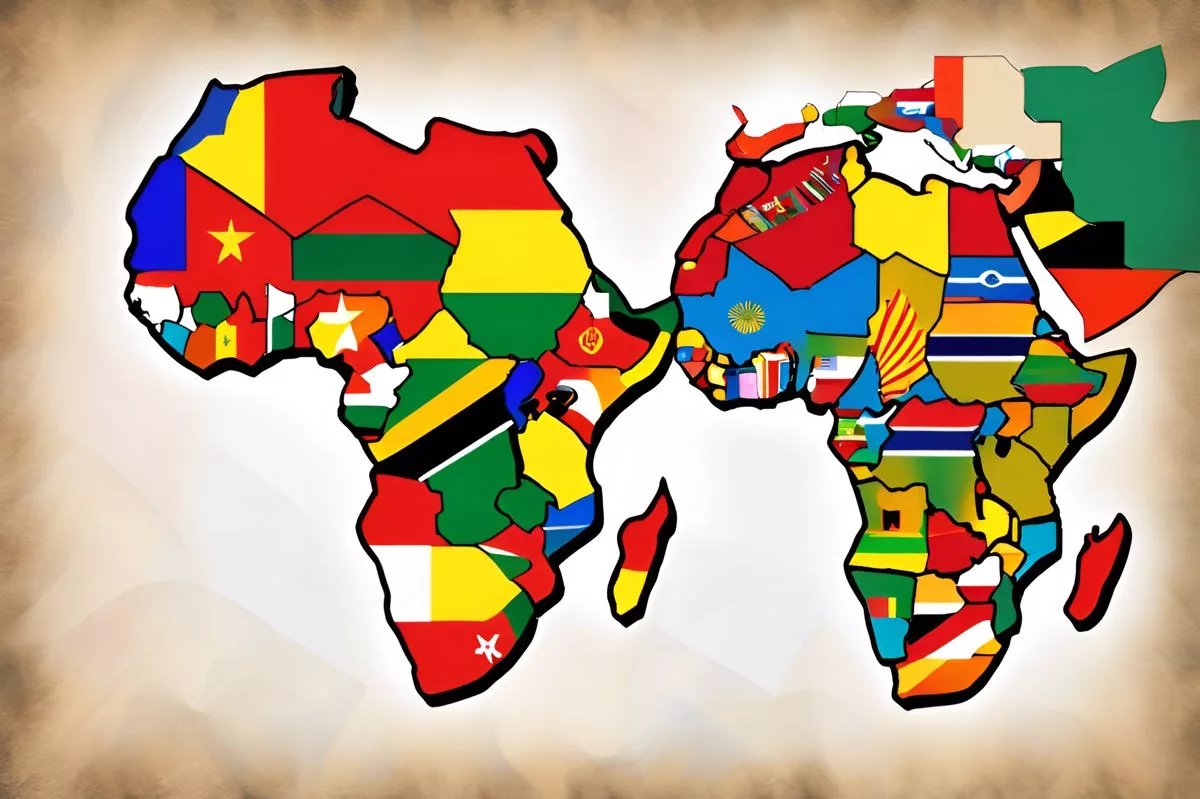The National Conference on Integrated Criminal Justice System focused on reviewing the Integrated Criminal Justice System and Criminal Procedure Act, No. 51 of 1977. Deputy President Mashatile emphasized the importance of examining the current legal framework to ensure that our laws are consistent with international standards and identified the challenges faced by the criminal justice system and democracy, including gender-based violence, corruption, and crime. The conference emphasized the importance of independent judicial institutions free from political influence and drew attention to the ongoing review process by the Minister of Justice to reinforce bail laws and address the worries of victims and communities.
What was discussed at the National Conference on Integrated Criminal Justice System?
The National Conference on Integrated Criminal Justice System focused on the review of the Integrated Criminal Justice System and Criminal Procedure Act, No. 51 of 1977. The conference aimed to examine the current legal framework, identify areas requiring modifications or alterations, and ensure that our laws are consistent with international standards. The conference also discussed the challenges faced by the criminal justice system and democracy, including gender-based violence, corruption, and crime. Finally, it emphasized the importance of independent judicial institutions free from political influence.
Chapter 1: The Context and Framework
At Birchwood Hotel, a consequential meeting of major participants was organized to facilitate the execution of the National Development Plan (NDP) 2030 vision through the National Conference. The conference concentrated on the review of the Integrated Criminal Justice System and the Criminal Procedure Act, No. 51 of 1977. Deputy President Shipokosa Paulus Mashatile, who is well-known for his passionate advocacy for widespread societal change and a robust criminal justice system, addressed the assembly.
The conference’s scheduling is perfect as South Africa is gearing up for the 2024 General Elections. This gathering provides an opportunity to introspect the criminal justice system in relation to constitutional rights, human dignity, and the encouragement of human rights and liberties. Deputy President Mashatile underscored the crucial function that the criminal justice system serves as the bedrock of democratic societies, upholding individual privileges and sustaining order.
Mashatile emphasized the importance of examining the current legal framework and identifying areas requiring modifications or alterations. In order to match the changing demands of society, he insisted that our laws must be consistent with international standards and should be flexible and adaptable. This evolution is guided by our Constitution, acting as a shining beacon directing us on our dynamic and arduous transformative journey. This shift has produced noticeable positive results, notably in improving the quality of life for South Africans.
Chapter 2: Challenges and Responses
The Deputy President identified the recent struggles faced by our criminal justice system and democracy, worsened by widespread corruption, crime, and Gender-Based Violence and Femicide. Despite numerous strategies to deal with ongoing crime, such as increased police visibility and investments in technology, criminal activity continues to be a daunting problem. The state’s ability to prosecute and penalize criminal conduct has placed pressure on the correctional service, leading to overcrowding and often undermining the pledge of “zero-tolerance”.
Nevertheless, the Deputy President called for determination and intensified efforts to achieve the desired goal. He praised the considerable changes that the South African legal system has undergone since apartheid, with the objective of creating equal opportunities and fairness for all citizens. He commended the recent replacement of the 1996 National Crime Prevention Strategy with the Integrated Crime and Violence Prevention Strategy (ICVPS), which received approval from the Cabinet in March 2022. The ICVPS concentrates on preventing crime and violence through a comprehensive cooperative framework.
Chapter 3: Economic Implications and Government Efforts
Considering the ongoing challenges that negatively impact the economy, especially in the construction industry, Mashatile stressed the need to combat construction mafias, which have led numerous businesses to their downfall. He explained the role of Economic Infrastructure Task Teams, emphasizing the need to strengthen the current interventions to safeguard economic infrastructure.
Corruption, which poses a threat to human rights and the rule of law, remains a top priority for the government. Mashatile acknowledged the government’s efforts to fight severe commercial crimes and serious organized crime through the Anti-Corruption Task Team (ACTT) and the Directorate for Priority Crime Investigation Operational Committee.
Mashatile referred to the Integrated Task Force, which oversees the implementation of 205 recommendations from the Zondo State Capture Commission. He informed that three convictions have been achieved, and 11 cases are presently before the court, tackling 36 recommendations while others remain under investigation.
Chapter 4: Reform and Future Directions
Mashatile expressed his concern over the declining confidence in the criminal justice system, as reported by the recent Statistics South Africa Victims of Crime Survey. He mentioned upcoming JCPS cluster strategies to deal with the prevailing crime situation, particularly focusing on battling violent and organized crime and corruption.
The Deputy President emphasized the importance of reducing unnecessary arrests that could violate individuals’ basic rights. He advocated for the promotion of alternative methods such as summons and written notices to ensure court attendance. This, he reasoned, would lower expensive civil claims against the state and alleviate the fiscal burden.
Mashatile drew attention to the ongoing review process by the Minister of Justice to reinforce bail laws and address the worries of victims and communities. He believes that the review’s outcome will ensure bail decisions consider the needs of victims and complainants, enhance crime fighting efforts, and address overcrowding in prisons and remand detention centers.
On the topic of Gender-Based Violence and Femicide (GBVF), Mashatile mentioned the increased life imprisonment sentences for GBVF, the Gender-Based Violence and Femicide Bill, and the implementation of other laws to combat GBVF. He also highlighted the need for legislative alignment to tackle the issue of illegal immigration in South Africa.
In his concluding remarks, Mashatile stressed the importance of independent judicial institutions free from political influence, a significant accomplishment of the democratic South African justice system. He also underscored the judiciary’s role in addressing historical injustices, promoting healing and reconciliation among South Africans, and fostering a more inclusive and united society.
This conference stands as a significant progression in the continuous evolution of the criminal justice system, bringing together a variety of voices and viewpoints to shape a more effective, fair, and responsive system for all South Africans.
1. What was the focus of the National Conference on Integrated Criminal Justice System?
The National Conference on Integrated Criminal Justice System focused on the review of the Integrated Criminal Justice System and Criminal Procedure Act, No. 51 of 1977.
2. What were the challenges faced by the criminal justice system and democracy discussed at the conference?
The challenges faced by the criminal justice system and democracy discussed at the conference included gender-based violence, corruption, and crime.
3. What did Deputy President Mashatile emphasize during the conference?
Deputy President Mashatile emphasized the importance of examining the current legal framework to ensure that our laws are consistent with international standards and identified the challenges faced by the criminal justice system and democracy.
4. What was the purpose of the Integrated Crime and Violence Prevention Strategy (ICVPS)?
The ICVPS concentrates on preventing crime and violence through a comprehensive cooperative framework.
5. What was discussed regarding economic implications and government efforts at the conference?
The discussion regarding economic implications and government efforts at the conference included combating construction mafias, fighting corruption, and implementing recommendations from the Zondo State Capture Commission.
6. What was discussed regarding reform and future directions at the conference?
The discussion regarding reform and future directions at the conference included reducing unnecessary arrests, reinforcing bail laws, addressing the issue of illegal immigration, and promoting independent judicial institutions free from political influence.












